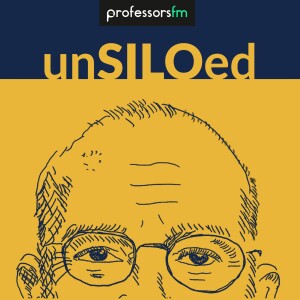
Live every day like it’s your last, or like it's the beginning of the rest of your life? The way we answer this question is closely tied to views on mortality, and how humans deal with the concept of their own impending demise. Death is the inevitable great leveler, and yet there are many different ways that humans think and live with the topic.
Andrew Stark is a professor of Strategic Management at the University of Toronto. Andrew is also the author of several books. His latest is titled The Consolations of Mortality: Making Sense of Death and his other books include, Drawing the Line: Public and Private in America, The Limits of Medicine, and Conflict of Interest in American Public Life.
Andrew and Greg discuss different views on death and mortality that have been present throughout history in different cultures and religions. They touch on the philosophies of Epicurus and of famous Stoics like Marcus Aurelius, and what more modern philosophers and literary figures have had to say about the subject of death, and explore how those more technologically-minded have set about to eliminate the threat of death and transform mortality almost completely.
*unSILOed Podcast is produced by University FM.*
Episode Quotes:On the resurgence of Buddhist and Stoic thinking
26:57: If you're a Buddhist and you believe there is no such thing as the self, then there's nothing that can die, first of all, because there is no self to die. There is nothing that really has any attachments in the world such that you could be harmed if something happens to them. And so letting go is, if you can achieve it, something that might allow you to lead a life that's more tranquil, more realistic, and maybe more beautiful. Stoicism is similar. It doesn't say there is no self, but it says that we should put ourselves in a situation where the only things we care about are the things we can control.
29:28: Mortal or immortal, we'd still be temporal. We would still be creatures who lived in time, and time brings changes. Things are constantly changing in time. One implication of that is that even if we didn't die, we'd still have the motivation to get out of bed in the morning.
Do we need to suppress some awareness of death to get the best out of us?
37:17: My own hope is that we simply be aware that being mortal is better than any other option we might have had if we're going to live in time; that is, if we're going to be temporal creatures, which we have to be, then being mortal is better than being immortal.
Even if we escape mortality, we're not going to escape time
32:49: I see right now that the world is changing in all sorts of ways, and I'm not saying I disapprove or approve of them. They're strange to me. And even if I can acclimatize to them, it's not as if the changes are going to stop. They're going to keep going on and on. And if we think about that over hundreds of years, thousands of years, or tens of thousands of years, time is the problem, and even if we escape mortality, we're not going to escape time.
Show Links:Recommended Resources:- Stanford Encyclopedia of Philosophy for Epicurus
- Poetry Foundation page for Friedrich Holderlin
- Wikipedia Page for the 27 Club
- Ozymandias
- Marcus Aurelius
- Ramses VII
- “The Snows of Kilimanjaro” by Ernest Hemmingway
- Derek Parfit
- Leon Kass
- Hans Jonas
- Bernard Williams
- Ray Kurzweil
- Martin Heidegger
- Non-religious Constellations
- It's a Wonderful Life
- Life Is Beautiful
- Faculty Profile University of Toronto-Scarborough
- The Consolations of Mortality: Making Sense of Death
- Drawing the Line: Public and Private in America
- The Limits of Medicine
- Conflict of Interest in American Public Life
More Episodes
Create your
podcast in
minutes
- Full-featured podcast site
- Unlimited storage and bandwidth
- Comprehensive podcast stats
- Distribute to Apple Podcasts, Spotify, and more
- Make money with your podcast
It is Free
- Privacy Policy
- Cookie Policy
- Terms of Use
- Consent Preferences
- Copyright © 2015-2024 Podbean.com







